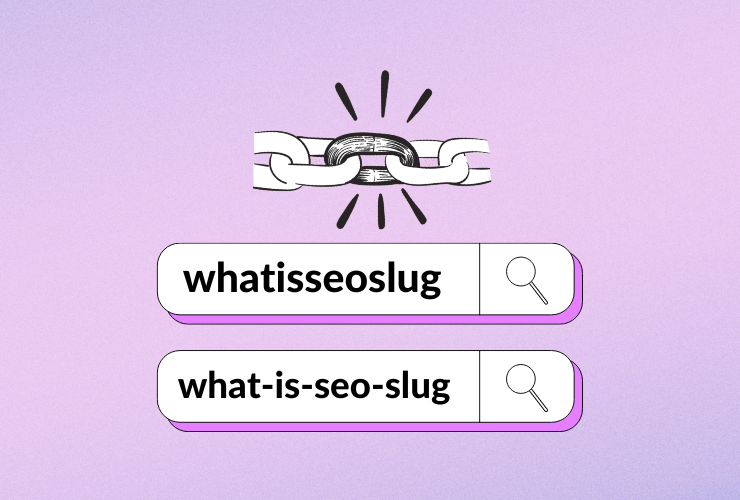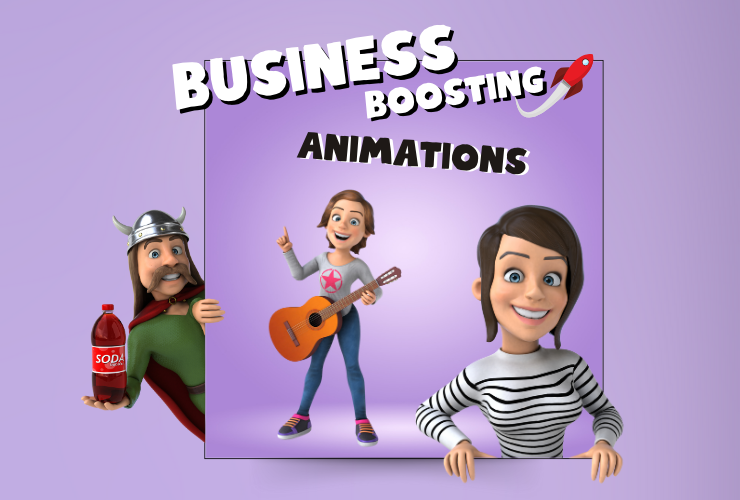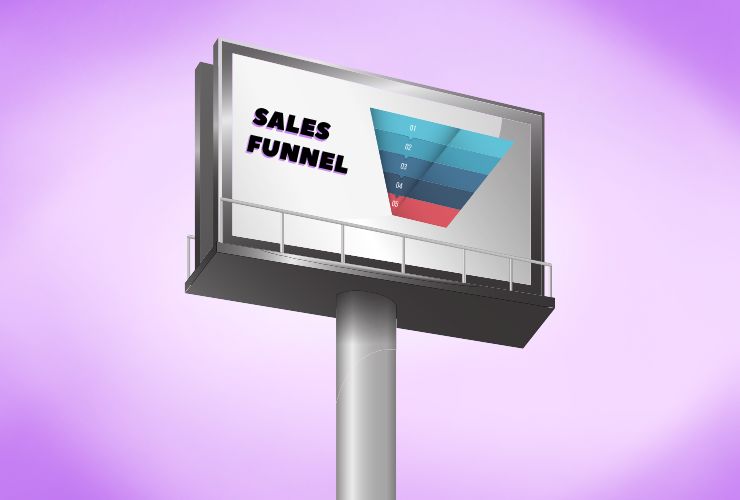What Is an SEO Slug, and How Do You Optimize It?- Sow Dream
What is an SEO slug? Is it just an URL? Well, an SEO slug is the part of a URL that identifies a particular page on a website in an easy-to-read form. It's typically the last part of the URL, after the forward slash (/). For example, the SEO slug for this blog post is "what-is-an-seo-slug".
SEO slugs are important for SEO because they can help search engines understand what your page is about. When you optimize your SEO slugs, you can improve your chances of ranking higher in search results.
And like you have predicted, there’s a lot on this plate to discuss. So. What's holding us?
Understanding SEO Slugs
An SEO slug, in essence, is a concise and meaningful snippet of text that forms a part of a webpage's URL. This seemingly insignificant string of words holds the power to influence search rankings, user experience, and the overall effectiveness of your content strategy.
Definition of an SEO Slug
An SEO slug is the part of a URL that identifies a particular page on a website in an easy-to-read form. It's typically the last part of the URL, after the forward-slash (/). For example, the SEO slug for this blog post is "what-is-an-seo-slug".
Explanation of Where the Term "Slug" Comes From
The term "slug" comes from the news media, where it is used to refer to a short name given to an article for internal use. In the context of SEO, a slug is used to identify a web page in a way that is both meaningful to humans and understandable by search engines.
Importance of Slugs in URL Structure and User Experience
SEO slugs are important for both URL structure and user experience. A well-optimized slug can help search engines understand what a page is about, which can improve its chances of ranking higher in search results. Additionally, a clear and concise slug can make it easier for users to remember and navigate to a page.
Here are some of the benefits of optimizing your SEO slugs:
- Improve your chances of ranking higher in search results.
- Make it easier for users to find your pages.
- Improve the readability and usability of your URLs.
- Create a more consistent and organized website structure.
The Role of SEO Slugs in Search Ranking
If anyone asks about the role of SEO Slugs, we would like to say, this is the pillar of SEO. Depending on this base or pillar, SEO stands and if you cannot make the pillar strong, the whole thing can come apart. So now you have an image of the role of SEO slugs. And that's how much it is important.
How Search Engines Use Slugs to Understand Content
Search engines use SEO slugs to understand the content of a web page. When a user searches for a keyword, search engines will look for pages that have that keyword in their slugs. If a page has a relevant keyword in its slug, it is more likely to rank higher in search results for that keyword.
For example, let's say a user searches for the keyword "best SEO tips". A page with the slug "best-SEO-tips" is more likely to rank higher in search results than a page with the slug "blog".
Impact of Relevant Keywords in Slugs on Search Ranking
The use of relevant keywords in SEO slugs can have a significant impact on search ranking. When search engines see a keyword in a slug, they know that the page is likely to be relevant to that keyword. This can help the page rank higher in search results for that keyword.
However, it is important to note that keywords are not the only factor that search engines consider when ranking pages. Other factors, such as the quality of the content, the number of backlinks, and the user experience, also play a role.
Balance Between User-friendly Slugs and SEO Optimization
When optimizing SEO slugs, it is important to strike a balance between user-friendliness and SEO optimization. On the one hand, you want to use relevant keywords in your slugs to improve your search ranking. On the other hand, you also want to make sure that your slugs are easy for users to understand and remember.
A good way to do this is to use a combination of relevant keywords and descriptive language in your slugs. For example, instead of using the slug "best-seo-tips", you could use the slug "10 SEO tips that will help you rank higher in search results". This slug is still relevant to the keyword "SEO tips", but it is also more descriptive and user-friendly.
Ultimately, the best way to optimize your SEO slugs is to experiment and see what works best for your website. There is no one-size-fits-all answer, but by following the tips above, you can improve your chances of ranking higher in search results.
Creating Effective SEO Slugs
Imagine the URL of your webpage as a signpost in the vast expanse of the internet. Now picture your audience navigating through this digital landscape, guided by these signposts. This is where the importance of a well-crafted SEO slug comes into play. A SEO slug is not just a random assortment of words; it's a strategic choice that can significantly impact your website's visibility and click-through rates.
Importance of Clarity and Relevance in Slugs
SEO slugs should be clear and relevant to the content of the page they are associated with. This will help users understand what the page is about and make it easier for search engines to index and rank the page.
For example, the slug for a page about "best SEO tips" should be something like "best-seo-tips". This is clear and relevant to the content of the page, and it is also easy for search engines to understand.
Use of Primary Keyword in the Slug for Better Ranking
The primary keyword is the main keyword that you want your page to rank for. You should include the primary keyword in your slug to help improve your chances of ranking higher in search results for that keyword.
However, it is important to use the keyword sparingly. You don't want to stuff your slug with keywords, as this can actually hurt your ranking. A good rule of thumb is to use the keyword once or twice in your slug.
Avoidance of Stop Words, Special Characters, and Excessive Length
Stop words are common words that do not add any meaning to a sentence. They should be avoided in SEO slugs, as they can make your slugs less clear and relevant.
Special characters, such as spaces, underscores, and dashes, can also be problematic in SEO slugs. They can make your slugs more difficult to read and remember, and they can also cause problems with search engines.
It is best to avoid using special characters in SEO slugs. If you need to use a special character, such as a hyphen, to separate words, make sure to use it consistently throughout your website.
Use of Hyphens to Separate Words for Readability
Hyphens are a good way to separate words in SEO slugs. They make your slugs easier to read and remember, and they also help search engines understand the meaning of your slugs.
For example, the slug "best-seo-tips" is easier to read and remember than the slug "bestseotips". It is also easier for search engines to understand that the slug is about "best SEO tips".
By following these tips, you can create effective SEO slugs that will help improve your search ranking.
Best Practices for Optimizing SEO Slugs
One must need to maintain these practices which are mentioned below while optimizing the SEO Slugs. You don't have to understand ROCKET-SCIENCE to optimize slugs. Rather following these easy steps could be a game changer for you/
Researching and Choosing the Right Keywords for Slugs
The first step to optimizing your SEO slugs is to research and choose the right keywords. You want to choose keywords that are relevant to your content and that people are likely to search for.
You can use a keyword research tool to help you find the right keywords. Once you have a list of keywords, you can start to narrow them down by considering factors such as search volume, competition, and relevance.
Utilizing Long-tail Keywords to Target Specific Audiences
Long-tail keywords are more specific than short-tail keywords. They are also less competitive, which means it is easier to rank for them.
If you want to target a specific audience with your SEO slugs, you should use long-tail keywords. For example, instead of using the short-tail keyword "shoes", you could use the long-tail keyword "women's running shoes".
Incorporating Location-based Keywords if Applicable
If your website is targeting a specific location, you should incorporate location-based keywords into your SEO slugs. This will help you rank higher in search results for people who are searching for businesses or products in your area.
For example, if you own a restaurant in New York City, you could use the slug "best-restaurants-in-nyc".
Keeping Slugs Concise and Under 3-5 Words
SEO slugs should be concise and under 3-5 words. This makes them easier to read and remember, and it also helps search engines index and rank them.
If you need to use more than 5 words in your slug, you can use hyphens to separate the words. For example, the slug "best-seo-tips-for-beginners" is 9 words long, but it is still easy to read and remember.
Highlighting the Unique Selling Point in the Slug if Possible
If your website has a unique selling point, you should highlight it in your SEO slugs. This will help you attract more visitors to your website and improve your chances of ranking higher in search results.
For example, if your website sells organic food, you could use the slug "organic-food-delivery".
By following these best practices, you can optimize your SEO slugs and improve your chances of ranking higher in search results.
Examples of Well-Optimized SEO Slugs
Here are some examples of Blogs, Product Pages, and Service Pages:
Blog Posts
- Before: how-to-write-a-blog-post
- After: how-to-write-a-compelling-blog-post-that-will-get-you-more-traffic
The before slug is too generic and doesn't tell the reader anything about the content of the blog post. The after slug is more specific and uses keywords that are likely to be searched for by people who are interested in learning how to write a blog post.
- Before: tips-for-improving-your-seo
- After: 10-seo-tips-that-will-boost-your-website-traffic
The before slug is again too generic. The after slug is more specific and uses keywords that are likely to be searched for by people who are interested in improving their SEO.
Product Pages
- Before: womens-shoes
- After: womens-running-shoes-black
The before slug is too general and doesn't tell the reader anything about the specific product. The after slug is more specific and uses keywords that are likely to be searched for by people who are looking for women's running shoes in black.
- Before: coffee-maker
- After: best-coffee-maker-for-home-use
The before slug is again too general. The after slug is more specific and uses keywords that are likely to be searched for by people who are looking for a coffee maker for home use.
Service Pages
- Before: web-design-services
- After: custom-web-design-services-for-small-businesses
The before slug is too general. The after slug is more specific and uses keywords that are likely to be searched for by small businesses who are looking for custom web design services.
- Before: SEO-services
- After: SEO-services-to-help-you-rank-higher-in-search-results
The before slug is again too general. The after slug is more specific and uses keywords that are likely to be searched for by people who are looking for SEO services to help them rank higher in search results.
These are just a few examples of well-optimized SEO slugs. When optimizing your own slugs, it is important to consider the following factors:
- The relevance of the keywords to the content of the page
- The length of the slug
- The use of hyphens to separate words
- The avoidance of stop words and special characters
By following these tips, you can create well-optimized SEO slugs that will help improve your website's ranking in search results.
Avoiding Common Mistakes
Things that are BIG NO here, are listed below. Check them out:
Overstuffing Slugs with Keywords
One of the biggest mistakes you can make is overstuffing your slugs with keywords. This can actually hurt your SEO efforts, as it can make your slugs look spammy and unnatural.
When choosing keywords for your slugs, it is important to use them sparingly and in a natural way. You should also avoid using the same keyword multiple times in the same slug.
Ignoring the Context of the Content
Another common mistake is ignoring the context of the content when creating SEO slugs. The slug should be relevant to the content of the page, and it should accurately reflect what the page is about.
For example, if you have a page about "how to write a blog post", the slug should be something like "how-to-write-a-blog-post". Don't use a slug-like "blog-post" or "write-a-blog-post", as these are not specific enough.
Using Automatic or Default Slugs Without Customization
Many content management systems (CMS) generate automatic or default slugs for pages. However, these slugs are often not optimized for SEO.
It is important to customize your slugs whenever possible. This will help you ensure that your slugs are relevant, concise, and keyword-rich.
By avoiding these common mistakes, you can create SEO slugs that will help improve your website's ranking in search results.
The Bottom Line
SEO slugs are an important part of search engine optimization (SEO). They are the part of a URL that identifies a particular page on a website. Well-optimized SEO slugs can help improve your website's ranking in search results. When optimizing your SEO slugs, it is important to consider some factors like, the relevance of the keywords to the content of the page, the length of the slug, and the use of hyphens to separate words. Following these tips, you can create SEO slugs that will help improve your website's ranking in search results.






